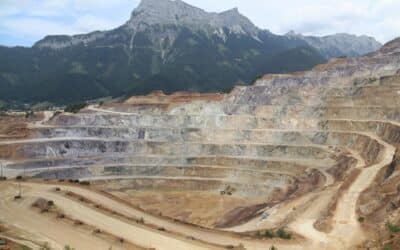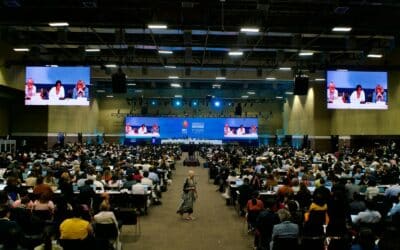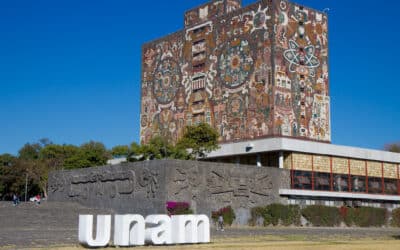By Laura Dunn, Geoengineering Monitor Editor
Scientists and civil society organizations voiced a strong rejection of the Overshoot Commission report launched yesterday. Undemocratically appointed, the Overshoot Commission is not an independent body; it is a group made up of former politicians brought together by a team of pro-geoengineering scientists and organisations. Several of the commission’s original members have stepped down since its launch. Some members, as well as members of the Youth Engagement Group, have raised concerns that the commission is operating in a way that is top-down, not representative and tokenizing youth.
Researchers at Climate Analytics published a blog calling the report into question saying, “the Commission is right to propose a moratorium on SRM deployment and large-scale outdoor experiments. But looking at the fine print, the report appears to actually encourage smaller scale experiments as long as they do not carry risk of ‘significant transboundary harm.’ Who defines what constitutes transboundary harm is unclear, while allowing any kind of testing would chip away at the resolve to ban wide-scale deployment”.
Lili Fuhr, the Centre for International Environmental Law (CIEL)’s Director of the Fossil Economy Program attended in person and pointed out that some of the commission’s advisors were involved in SRM research and asked how the commissioners handled the conflict of interest.
In a statement released by CIEL, she said, “by referring to carbon dioxide removal in its report as ‘virtually unavoidable’, the Commission ignores the fundamental risks and uncertainties associated with these approaches and helps direct public attention and funding away from real and proven solutions, which start and end with phasing out fossil fuels. This report’s recommendations further delay real climate action”.
Critics also noted the important differences between the moratorium called for in the Overshoot Commission’s report and the moratorium put in place at the CBD in 2010. In the statement by CIEL, Fuhr said, “by only including deployment and large scale experiments, the proposed moratorium leaves dangerous loopholes for outdoor experiments that might fall outside of such a poorly defined threshold. It is conspicuous that the 2010 CBD decision is buried in a footnote of the Commission’s report”. CIEL also highlighted the human rights implications of solar geoengineering technologies.
In a statement from ETC Group, Latin America Director Silvia Ribeiro points out that “asking for “small” experiments as the Overshoot Commission implies in their report, will not generate more knowledge about the effects of solar geoengineering on climate, it is nothing more than a way to justify supporting more and larger experiments to enable eventual deployment”.
ETC Group also emphasised that “the focus on carbon markets, private investment and public subsidies to these technologies was also pointed out as a very dangerous distraction from real emission reductions and the support needed for the real solutions to climate change.”
The Women and Gender Constituency, a rights-based network that advocates for gender-just climate solutions expressed deep concern about the report. They emphasised the reports bias and the problem with normalising a false “Plan B” for the climate.
Gina Cortés Valderrama, co-Focal Point of the WGC and former member of the YEG who stepped down since its launch, said “as decolonial and intersectional feminists we scrutinise the invisible, visible, and hidden powers behind the climate crisis that are deeply intertwined with issues of social injustice and gender inequality. This is why we are highly concerned about the undue and desired influence and disproportionate power wielded by elite actors behind the Commission aiming to shape the climate policy discourse and its technological development.
“The Climate Overshoot Commission even instrumentalises feminists’ fights and advocacy work by co-opting “CARE” as an acronym to raise empathy towards their agenda – however, their recommendations in the report and the logic of their actions do not coincide with the fundamental principles of a care economy.”
These voices must not be ignored. The fine line between open-air solar geoengineering experiments and actual deployment mean that opening the door to experiments poses a real risk to community, ecosystems and the climate.



